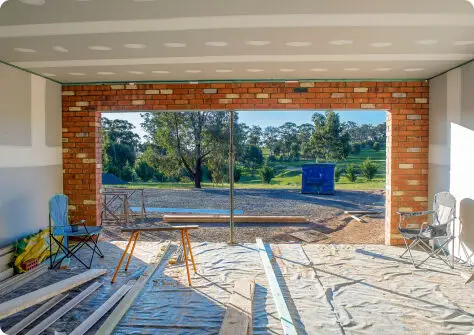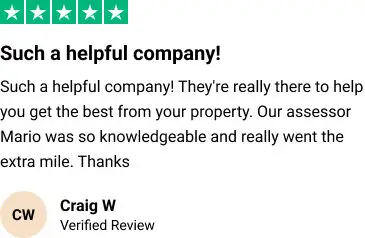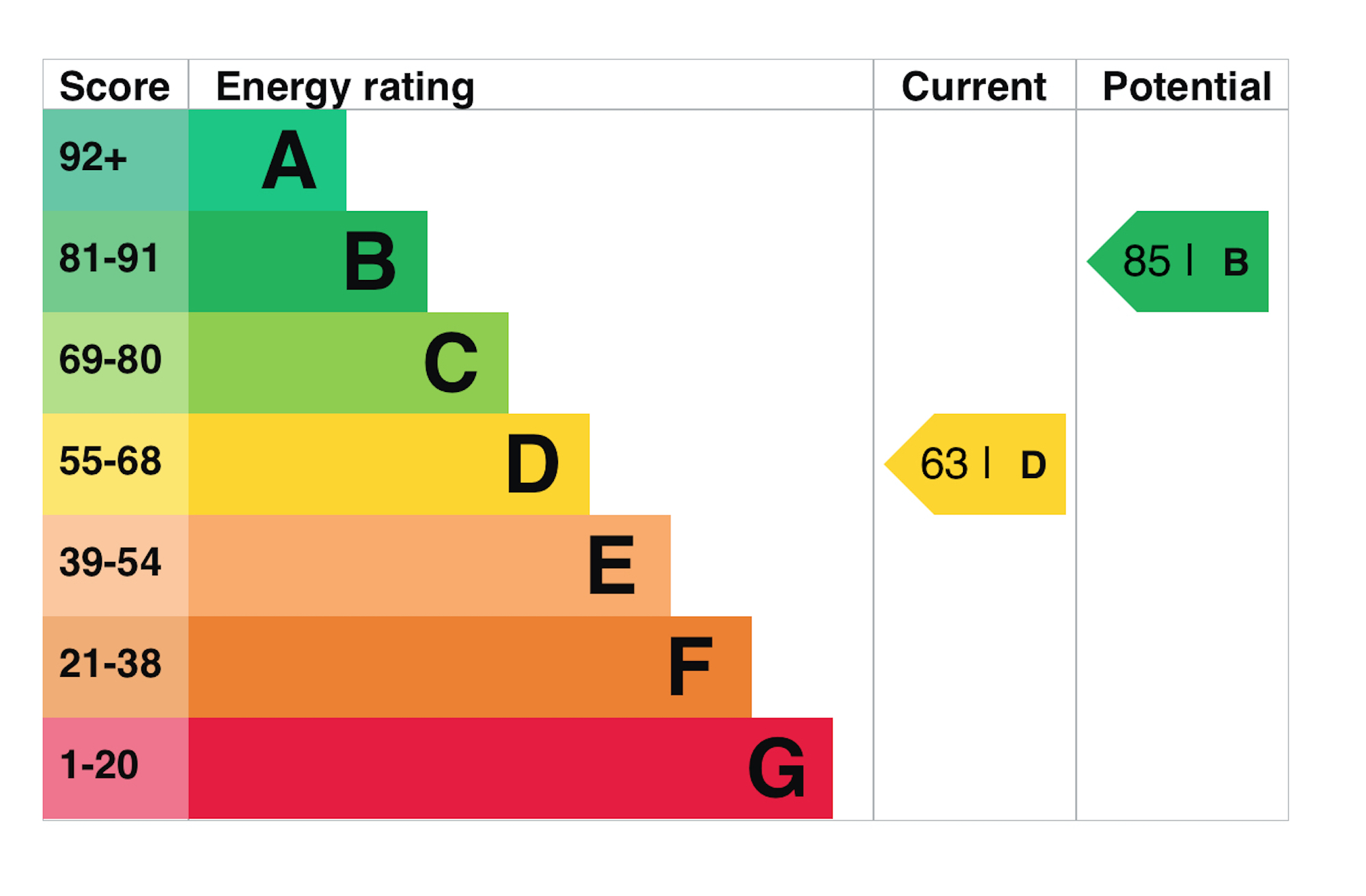Trusted by over 1.7k happy people


Domestic energy performance certificates (EPCs) are rated from G to A and from 1 to 100. A D rating is awarded to any property which achieves a score of between 55 and 68. This indicates that the building is 55 to 68% energy efficient.
Lower letters indicate a more efficient building e.g a B is a better rating than a D. A more efficient building is also indicated with a higher number e.g. an 89 is more efficient than a 56.

EPC rating D is the most common rating for domestic properties throughout England and Wales. If your property has a rating of D then it has about average energy efficiency compared to other properties in the UK.
A rating of D is certainly not a bad rating (especially for older buildings) but does signify that there are still significant improvements you can make to your property. It is also likely that privately rented properties will have to improve to a C rating in the future due to proposed government legislation.
EPC rating indicates the energy efficiency of your property. A more efficient building uses less energy over time to keep itself a desired temperature and heat water. Using less energy typically means your electricity and/or gas bills will be less, so a better rated building often is cheaper to run than other buildings of the same size with worse EPC ratings.
We cant provide exact figures for the energy costs of a D rated building without further assessment as each property is unique and floor area, fuel sources for heating and other factors have big effects on the overall energy usage of a buidling. We can say however that a D rated building will typically cost more to run than a C or B rated building of the same size. In the same vein, a property with an EPC rating of D will typically cost less to run than an E or F rated building of the same size.
For a while there has been talk of updating minimum energy efficiency standards (MEES) for privately rented properties. Although there is no set date for this to happen, proposed government legislation is suggesting making it a requirement for properties to achieve a minimum of a C EPC rating by 2030 to be legal to privately rent.
The current minimum for privately rented properties is an E. If the minimum does get raised to a C, all non exempt properties with a rating of D or below will need to make improvements to their buildings to continue being privately rented.Without doing this landlords could face up to a £30,000 fine. Many properties may require major upgrades to achieve the new minimum rating. To see if your property is exempt from these requirements read our article here.
If you are looking for ways to improve your properties rating, then you can book a quick and easy MEES assessment with us and get a certified professional to have a look at your building and suggest several certain ways to improve its rating.
We can't tell you exactly what must be done to improve your property without a full assessment which you can get here. This is because every building has different needs and different areas it is falling behind in. However, we can tell you some of the improvements we've reccomended to buildings to improve from a D rating in the past.
Increase hot water cylinder insulation: If your property has a hot water cylinder and this is uninsulated, has foam insulation 25mm thick or less or a jacket of 80mm thickness or less, then increasing this level of insulation to the thickest practical width can lead to an EPC rating improvement of a few points. This can often be done with minimal disruption and cost.
Upgrading insulation in lofts or walls: Adding insulation to a loft that was inadequately insulated before can enhance your EPC score by multiple points. Though costlier and more challenging to execute than certain other options mentioned, the significant savings on energy costs and the boost to the EPC rating typically make it a highly valuable enhancement. Similarly, insulating a cavity wall that previously had none often proves practical in relation to return on investment and uplift in EPC rating.
Installing Solar PV: Since adding solar PV systems is highly likely to substantially lower your energy expenses, it usually results in a markedly better EPC score. We are capable of conducting assessments to inform you precisely about the quantity of PV necessary to attain a desired EPC rating for your particular building.
Installing Solar Hot Water: Whilst installing solar hot water does not improve an EPC rating or reduce running costs as much as installing solar PV, it can still often give a worthwhile boost to both these factors.
*These recommendations are general advice based off buildings we have previously assessed and may not be the right thing to do to improve efficiency in your property. Proper consultation should be booked before committing to any improvements.
An EPC D rating is about average for buildings across the UK. In the future if proposed government legisslation is aprvoved all privatley rented buildings with a rating of D will neeed to make improvements.

